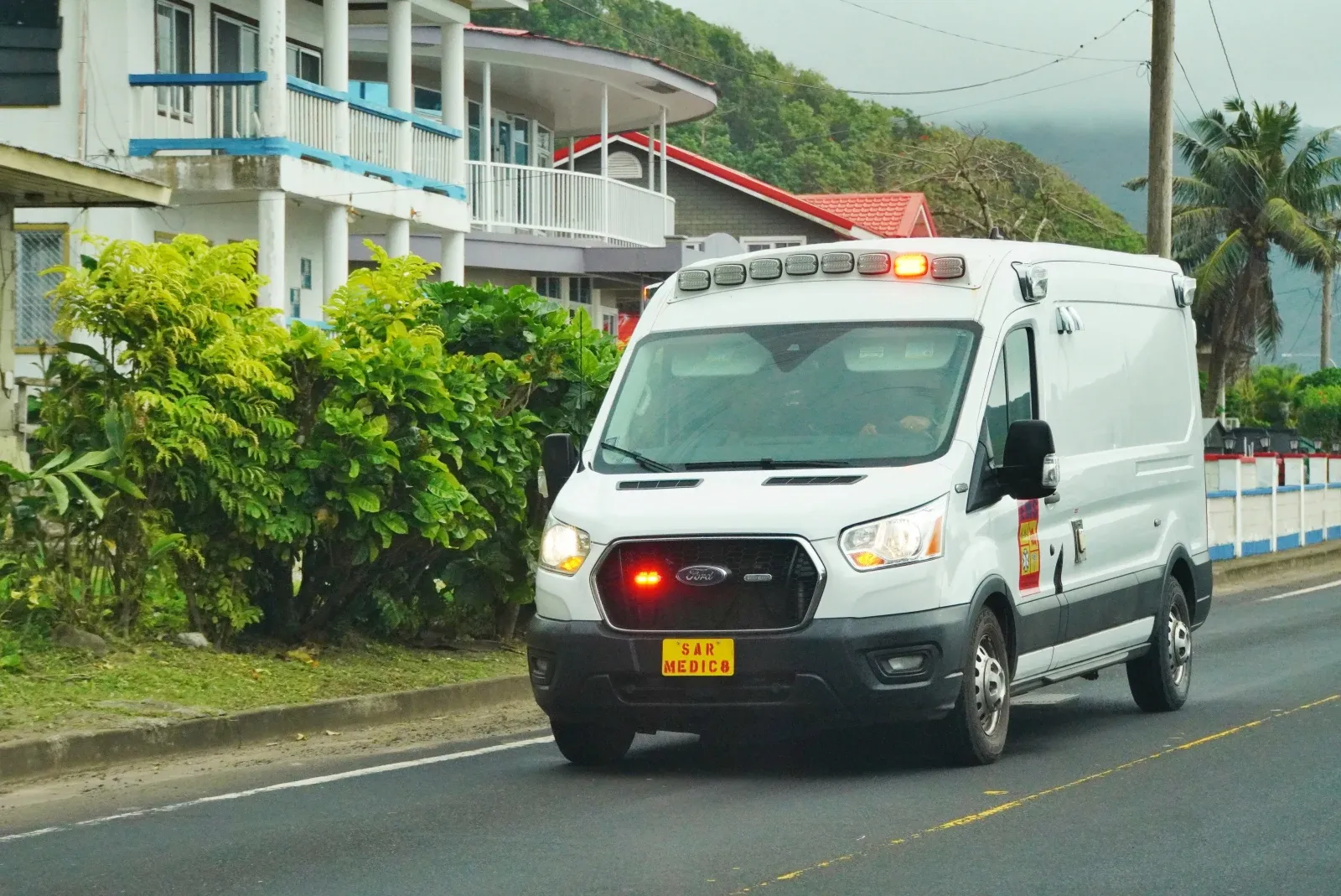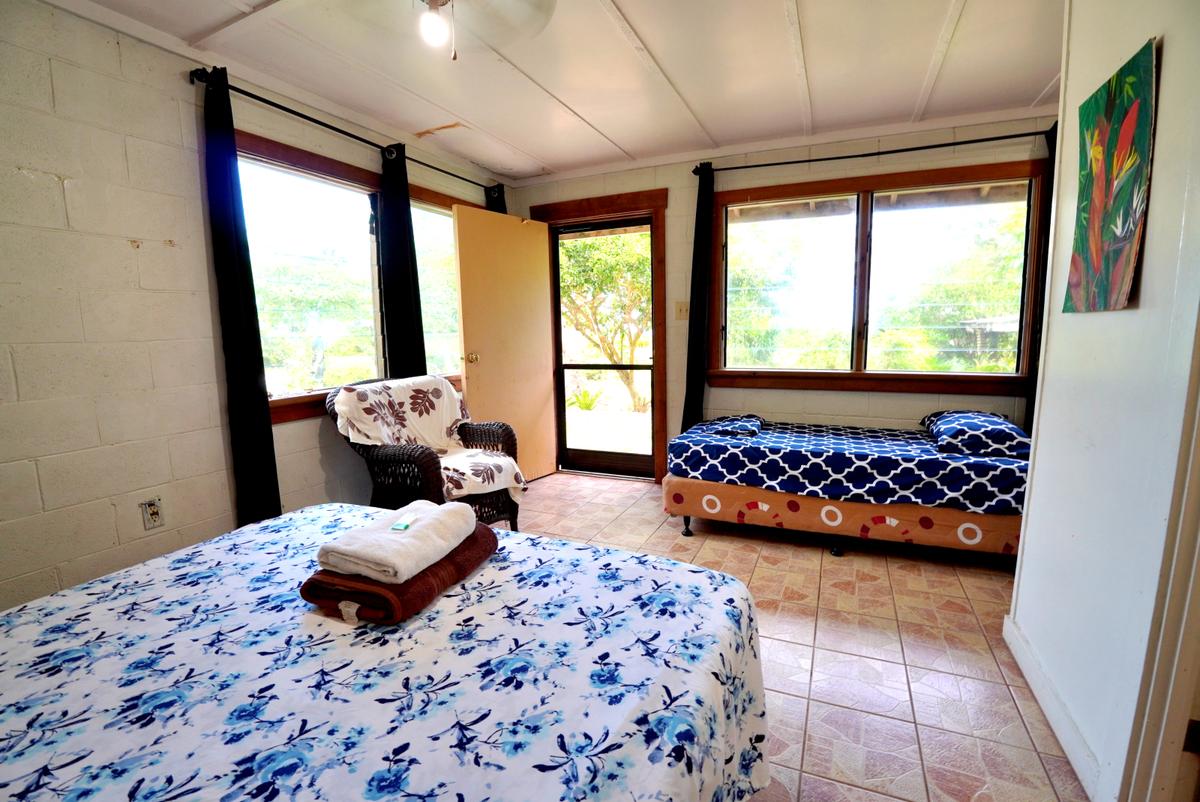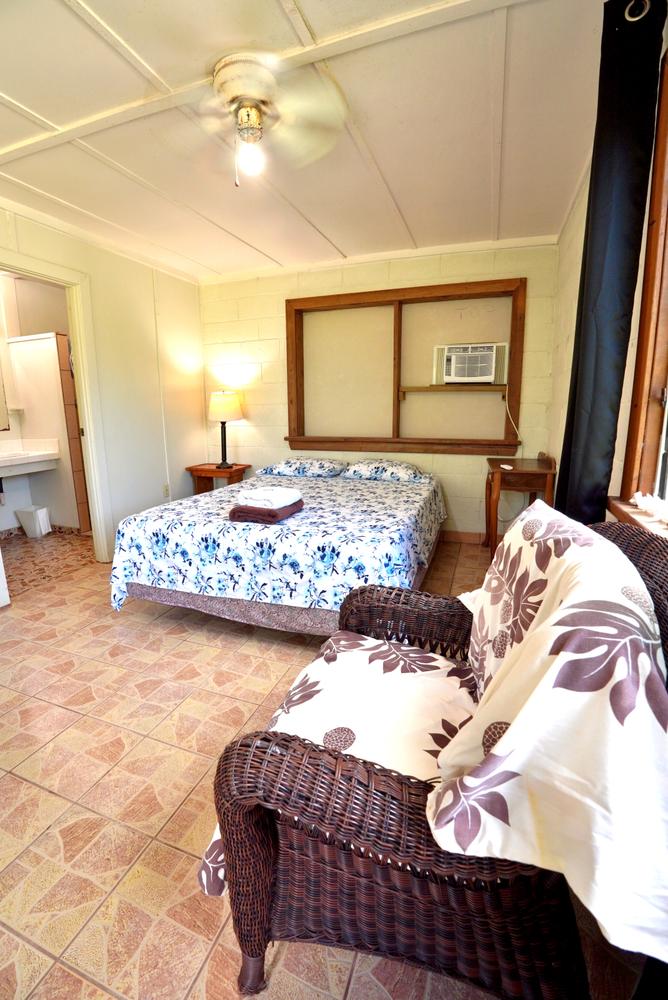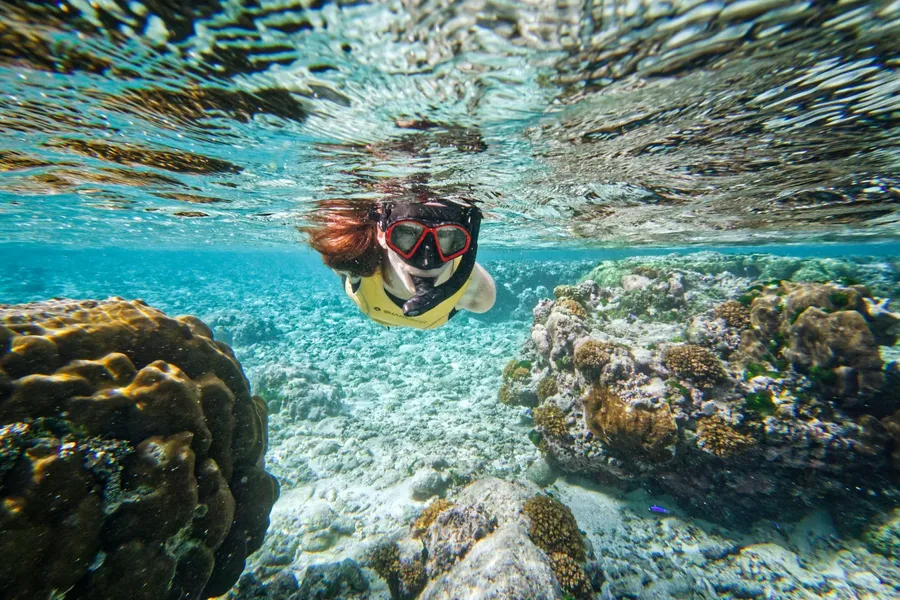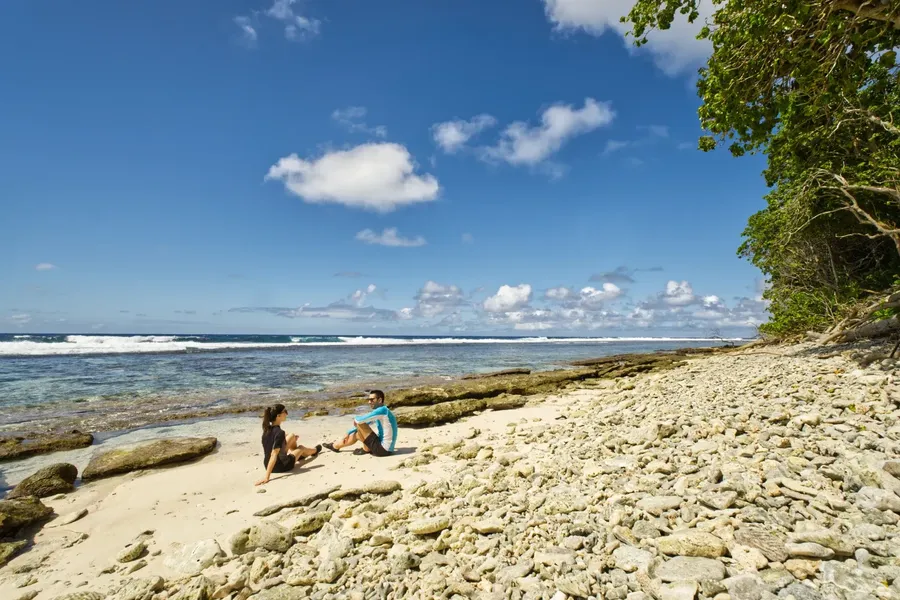The Complete Guide to Health and Safety in American Samoa for Travellers
Crime is minimal, there are no crocodiles, no malaria and not much else to be too concerned about. All in all, American Samoa is a very safe place to visit.
However, mosquitoes can be a pain and spread diseases, drinking tap water can leave your stomach feeling funny, and being swept away in a reef passage (or ava) is never fun.
In this guide on how to stay safe in American Samoa, we outline the health and safety issues to be aware of in American Samoa and how you can reduce the risks.
Table of Contents
10 Health Tips for American Samoa
Before we go into our in-depth health and safety tips for American Samoa, here are a few quick tips to keep in mind while travelling:
- If you are feeling ill, be proactive and see a doctor in American Samoa. They are more likely to know the local illnesses than your doctor back home.
- Go heavy on the sun protection.
- Be serious about avoiding mosquito bites.
- Make sure your travel vaccinations are up-to-date. See a doctor 4-6 weeks before travel at the latest.
- Know what water is safe to drink.
- Focus on hand hygiene and wash your hands regularly.
- Pack a first aid kit specifically for American Samoa.
- If you get cut, act quickly to clean the wound, disinfect and place an adequate band-aid.
- If you have pre-existing conditions, such as asthma or diabetes, see your doctor a few weeks before your trip and ask them to make a note of your medication and condition.
- Know the emergency number in American Samoa: 911.
Now, let's get onto our health and safety advice for American Samoa.
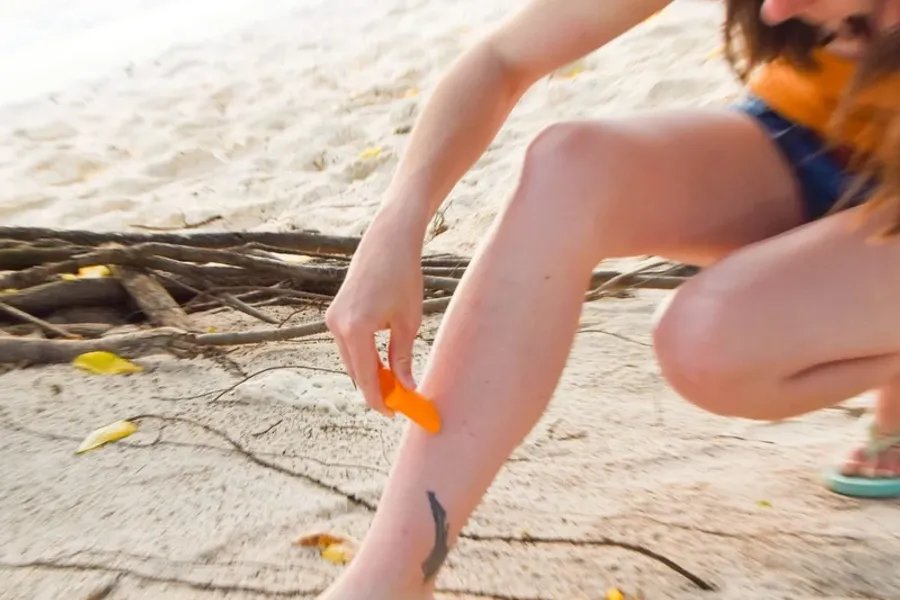
Health Tips for American Samoa
American Samoa presents a few environmental hazards but very few diseases. Like travelling anywhere in the world, it's smart to have your travel vaccinations up-to-date and to prepare a first aid kit for injuries or minor health issues that might occur. See our advice in What Medication to Pack in Your First Aid Kit for American Samoa and Do You Need Vaccines to Travel to American Samoa?
Medical Issues That Can Occur in American Samoa
The most common medical issues that can occur in American Samoa are sunburn, heatstroke, mosquito bites and coral cuts. These are very easy to keep in check with simple precautions.
Other medical issues may occur when it comes to drinking water and food, which we cover in our "Food and Water Hygiene" section.
Heat Stroke
Overexposure to the sun and high humidity can lead to heatstroke. Symptoms include exhaustion, confusion, headache and vomiting. To avoid, wear high-factor sunscreen, reapply every three hours or straight after swimming, and drink plenty of water. If symptoms occur, move out of the sun immediately and try to cool the victim down by wrapping a wet towel around them. See a doctor as soon as possible.
For more sun protection tips, check out The Best Sunscreens for American Samoa + Sun Protection Tips.
Mosquito Bites
Mosquitos can leave a nasty itchy bite, which is enough to ruin an evening under the stars. What's more, day-biting mosquitoes transmit dengue fever (see below) and, more rarely, chikungunya and Zika.
Check out 10 Best Insect Repellents for American Samoa + How to Treat & Avoid Bites for ways to avoid bites.
Ciguatera
Ciguatera is fish poisoning caused by eating reef fish that have eaten particular types of toxic algae. Symptoms occur within 24 hours of eating contaminated reef fish and include vomiting, diarrhoea and numbness in the fingers.
The best way to prevent it is to avoid eating reef fish altogether; eating deep-sea fish, like tuna, wahoo and mahimahi, is fine.
Coral Cuts
Cuts from live coral can leave prolonged infections, so if you are injured by live coral, get out of the water immediately and cleanse the wound. Take out all of the bits of coral, apply antiseptic cream, and cover with a dressing.
You should have all this stuff in your American Samoa First Aid Kit!
Diving Decompression
Scuba diving is a popular activity in American Samoa, but neglecting the strict depth and timing precautions of scuba diving can result in decompression illness, otherwise known as "the bends".
American Samoa is fortunate to have two hyperbaric chambers on the main island, Tutuila (Pago Pago): one at the LBJ Hospital and the other with Pago Pago Marine Charters. However, it’s important to note that the chamber at Pago Pago Marine Charters is currently in dry storage and not maintained or certified for use—it would require recertification before being operational. The LBJ Hospital chamber is an acrylic model, which can provide basic treatment for decompression sickness but is limited in its capabilities and may not be suitable for all types of diving emergencies.
Infectious Diseases
Dengue Fever
Dengue fever is a mosquito-transmitted disease that has regular outbreaks in American Samoa. It is only the day-biting mosquitoes (black and white striped) that cause the infection, so take a precaution by preventing mosquito bites. Take your own mosquito repellent because the options are typically limited to chemical-rich aerosol sprays.
See the How to Treat & Avoid Mosquito Bites for tips.
Chikungunya
Similar to dengue fever, chikungunya is another mosquito-transmitted disease also spread by day-biting mosquitoes. Outbreaks have been known to occur in American Samoa, such as in 2014 when cases reached more than 700.
There is no vaccination or specific treatment for the disease, so, again, sensible mosquito avoidance is recommended.
E. coli (Traveller's Diarrhoea)
E. coli is a bacterium, resulting from food and water that is contaminated with faecal matter, for instance.
Precautions to take include boiling water for at least 10 minutes if the water is not from a safe source and washing hands regularly. See Is the Water Safe to Drink in American Samoa? for more tips.
Symptoms include fever, drowsiness and diarrhoea. If symptoms occur, hydrate by taking small sips of fluids continuously, alternating between electrolytes and water. If you don't have an electrolyte solution, drink Coca-Cola or salty broth.
In most cases, you will need to wait out the symptoms, as antibiotics rarely treat E. coli effectively.
COVID-19
The COVID-19 virus has been present in American Samoa. Symptoms are flu-like, including fever, cough, tiredness and loss of taste or smell.
It is recommended that you are fully vaccinated before travelling to American Samoa. See Do You Need Vaccines to Travel to American Samoa? for more details.
Typhoid Fever, Meningitis, Measles and Hepatitis A
While rare, typhoid fever, meningitis, measles and hepatitis A outbreaks have occurred in American Samoa over the past 10 years.
It is recommended by the World Health Organisation (WHO) to be up-to-date with routine vaccinations and to get travel vaccinations, such as diphtheria, tetanus, measles, mumps, rubella and polio, regardless of where you are travelling to.
Find out more in Do You Need Vaccines to Travel to American Samoa?

Natural Disasters in American Samoa
Although American Samoa is usually blessed with buckets of sunshine, its location in the South Pacific means that it is at risk of extreme weather events and natural disasters.
Cyclones
The South Pacific cyclone season runs from November to April. On average, American Samoa experiences a big cyclone once every five or so years.
American Samoa is well prepared for cyclones; however, so check out Cyclones in American Samoa: A Guide to Cyclone Safety for advice on safety precautions.
Tsunamis
Being just north of a major earthquake zone, American Samoa has had rare but serious incidents of being impacted by tsunamis.
Anyone visiting American Samoa should know how to identify the signs of a tsunami and know what to do in the case of one before visiting; The Guide to Earthquakes & Tsunamis in American Samoa will give you some pointers.
Volcanic Eruptions
American Samoa sits on some seriously active geological ground, with Tutuila, Ofu, Olosega and Ta'ū all considered potentially active volcanoes.
The last confirmed land eruption happened on Tutuila between 1,400 and 1,700 years ago, but underwater activity has been much more recent.
The real hotspot is Vailuluʻu seamount, a submarine volcano 28 mi (45 km) east of Ta'ū Island that's erupted multiple times over the past 50 years.
In 2022, the U.S. Geological Survey raised Ta'ū's alert level to "Yellow/Advisory"; the first time it had been assigned any alert level.
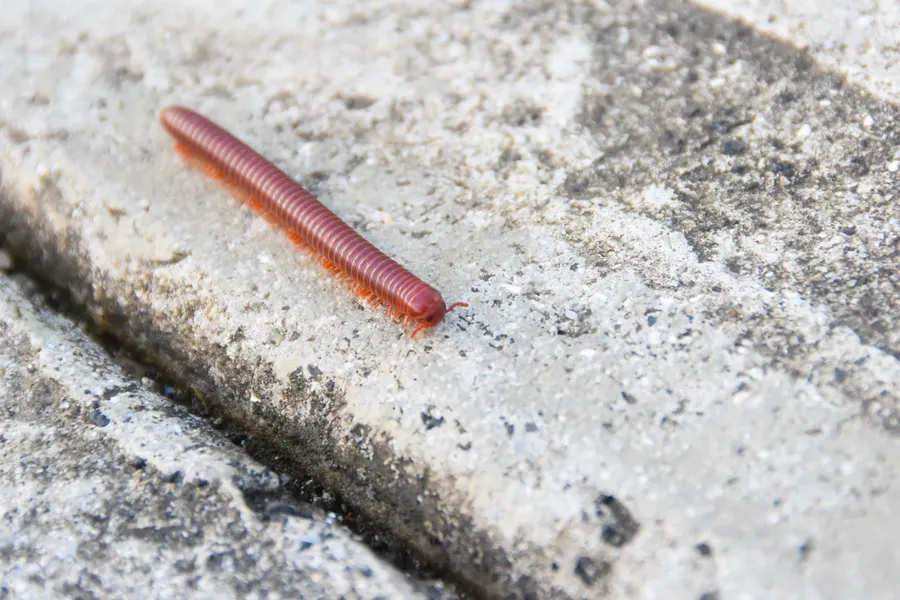
Dangerous Animals in American Samoa
American Samoa doesn't have any poisonous spiders or poisonous land snakes (one of the 25 Fun Facts About American Samoa), but there are venomous fish, as well as other animals that you'd best avoid. These include:
- Aedes aegypti - The day-biting mosquito that can transmit dengue fever.
- Centipede - Will leave a painful bite if provoked.
- Dogs - More of a problem for their bark than their bite.
- Crown-of-thorns starfish - Has venomous spikes.
- Stonefish - A rare but camouflaged fish that have venomous spines.
- Fire coral - Has bright yellow branches and leaves a nasty sting or rash.
- Lionfish - Fish that leaves a painful sting.
- Man o' war jellyfish - Rarely seen but they can get carried over reefs after storms.
For more information about the sort of animals you'll see in American Samoa, check out 20 Animals & Birds Found in American Samoa.
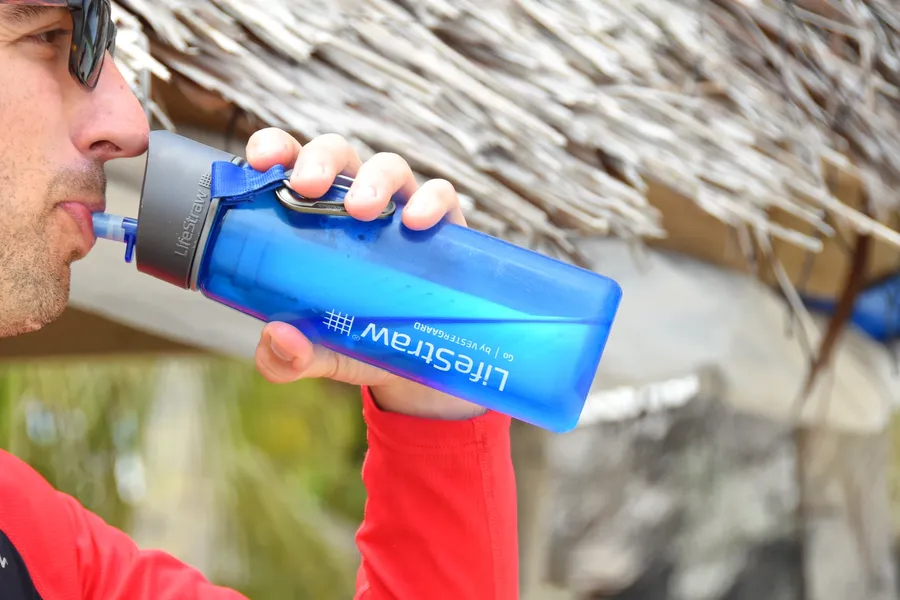
Food and Water Hygiene
Food and water in American Samoa are generally safe and readily available, but you shouldn't drink from any old tap. Basic travel-health rules are worth keeping in mind. We go over a few food and water hygiene tips for American Samoa here.
Know What Water is Safe to Drink
Tap water is generally not safe to drink, even if locals are drinking it. Hotels and lodges normally let guests know where to get safe drinking water at their facility, but it's typically a couple of plastic water bottles left in your room. It's best to bring your own water purification solution, like a Lifestraw Bottle. Otherwise, bottled water is readily available to buy throughout American Samoa.
See Is the Water Safe to Drink in American Samoa? for much more of a deep dive into the subject.
Focus on Hygiene
Travelling to a different country can be an enriching cultural experience, but you will need to accept a small portion of risk with conditions being different from home, including exposure to foreign viruses and bacteria.
First, focus on hygiene by washing your hands regularly or using a hand sanitiser, especially before eating food.
In the unlikely case that you do start feeling ill, act quickly by seeking medical attention. If you let the situation worsen, it may be very strenuous to wait to see a doctor.
Be Aware of Food Safety
Eating in restaurants or at tourist accommodations is usually very safe in American Samoa. But if you're eating street food, like from roadside barbecues, then there are a few things to be aware of. For instance, if you're in an area that may have unsafe water, avoid eating salads or uncooked food that might have been washed with contaminated water. Preferably, eat food that has been cooked in front of you. Vegetarian food is usually the safest option.
To avoid gastro bugs, use hand disinfectant and only eat cooked food. If you get diarrhoea, drink water regularly and alternate between electrolytes and water. If other symptoms occur, see a doctor.
Finally, avoid salmonella by not eating runny eggs or undercooked meat. If you have blood in your stool, see a doctor immediately.
Travellers with gluten intolerance can get advice from The Gluten-Free Guide to American Samoa.
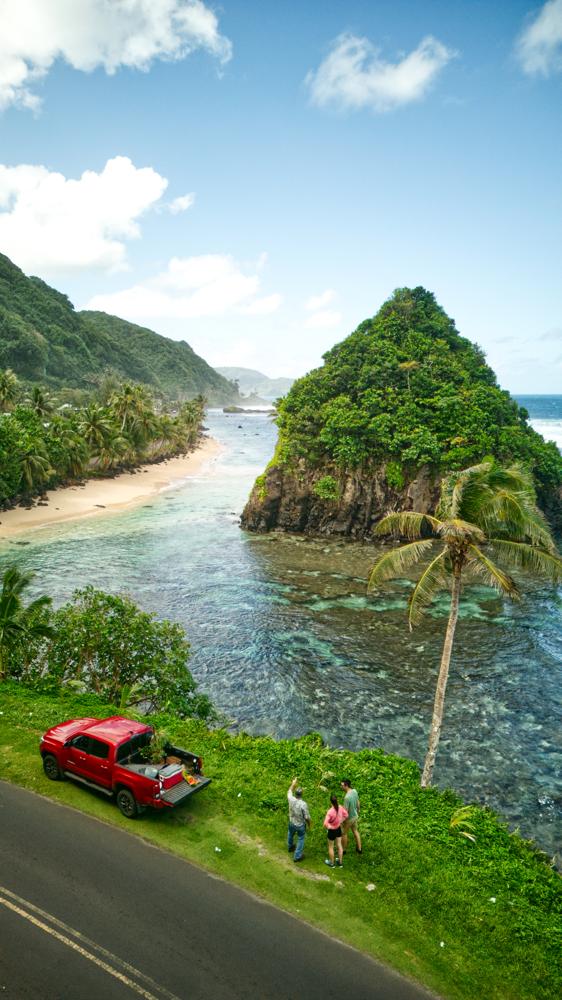
Editor's Choice
North Shore Tours
Discover Tutuila your way with our personalised full-day adventure! Rather than cramming you into a one-size-fits-all tour, we craft each excursion around your interests and abilities. Explore the...
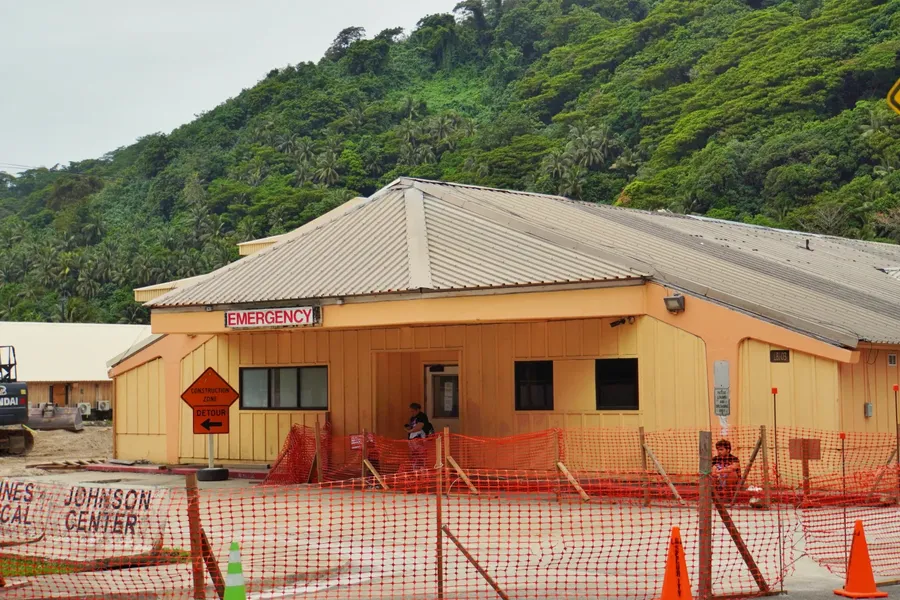
Hospitals, Medical Centres and Pharmacies in American Samoa
Healthcare in American Samoa
If you have health issues or serious injuries while in American Samoa, then there are hospitals (some of which also act as medical centres/GPs), as well as private medical centres and pharmacies. Basic over-the-counter medical supplies can be bought at supermarkets and some convenience stores.
Note that the phone number in an emergency is 911.
Pharmacies in American Samoa
- LBJ Tropical Medical Center Pharmacy, Route 104, Faga'alu, Tutuila (main hospital)
- Tafuna Family Health Center Pharmacy, Route 117, Tafuna, Tutuila
- Drug Store, Route 001, Faga'alu, Tutuila
- Drug Store, Forsgren's Shopping Center, Route 001, Nu'uuli, Tutuila
- Manu'a Health Center Pharmacy, Ta'ū, Manu'a Islands
Medical Centres and Hospitals in American Samoa
- LBJ Tropical Medical Center, Route 104, Faga'alu, Tutuila (main hospital)
- Tafuna Family Health Center, Route 117, Tafuna, Tutuila
- Saelua Medical Corporation, 5799 Tafuna Industrial Park, Tafuna, Tutuila
- Leone Clinic, Route 004, Leone, Tutuila
- Faga'alu Clinic, Faga'alu, Tutuila
- Amouli Clinic, Amouli, Tutuila
- Ofu Clinic, Ofu, Manu'a Islands (inside the executive building near the airport)
- Ta'ū Clinic, Luma, Ta'ū Village, Manu'a Islands
For map locations and up-to-date opening hours, check out the Department of Health website.
Plus, for more essential services around the islands, take a look at Information, Shops & Services in American Samoa.
%20CREDIT%20AmericanSamoaPocketGuide.com-900x600.webp?v=2025-11-24T01%3A36%3A54.634Z)
Crimes Against Tourists in American Samoa
American Samoa is generally very safe when it comes to crime, while tourist scams are unheard of. However, there is the occasional petty crime, like theft, in cases where valuables are on display. Rarer still, violent and sexual assaults have occurred in American Samoa.
Theft in American Samoa
Beach and hiking trailhead locations are higher-risk areas for theft of unattended items. Thefts are very rare for items that are out of sight, but leaving items on display in your rental vehicle is a potential trigger for theft.
Take the usual precautions for vehicles; don't leave valuables visible. Ideally, take valuables with you.
In short, theft is not something to be too worried about in American Samoa, but a bit of commonsense precaution is always advised.
Violence in American Samoa
American Samoa is certainly not a violent country. In the rare times that violence does occur, it's usually disputes between locals rather than directed at foreigners. If a fight breaks out, it's best to leave the situation immediately.
However, the usual precautions like avoiding walking through poorly lit streets, hitchhiking alone or heading out to bars alone should be taken.
American Samoa Department of Public Safety (American Samoa Police)
Emergency number: 911
There are police stations in the following locations:
- Department of Public Safety Headquarters, Route 001, Fagatogo, Tutuila
- Leone Police Sub Station, Route 004, Leone, Tutuila
- Ta'ū Police Station, Ta'ū Village, Ta'ū, Manu'a Islands (down the road from Manu'a High School)
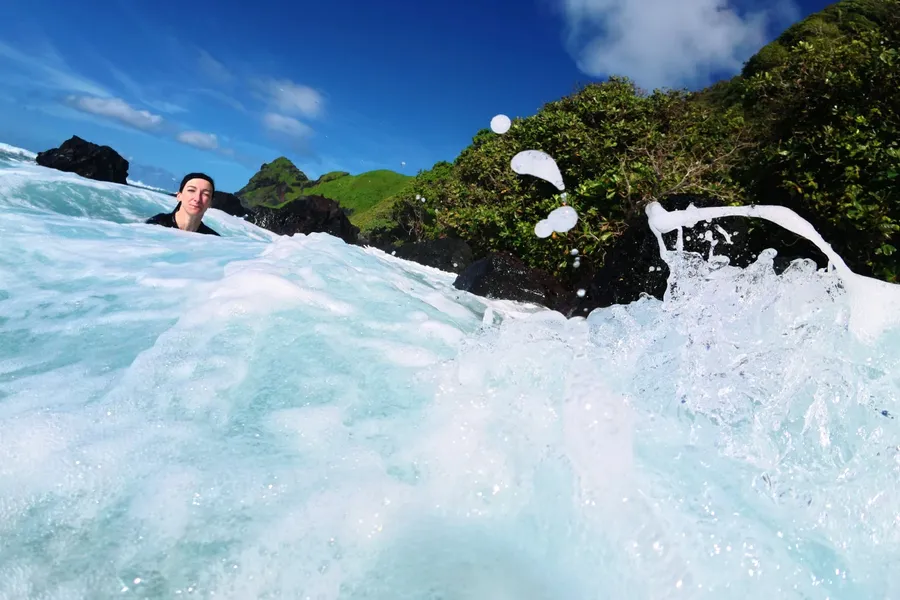
Water Safety in American Samoa
Water activities are a highlight of American Samoa, but precautions should be taken when out swimming.
Not all beaches are good for swimming in American Samoa, so you should always seek advice before heading out.
Snorkelling, for instance, is generally recommended around mid-tide or slack tide in some snorkelling spots like Ofu Beach, where the waves break over the nearby reef at high tide and produce stronger currents, but the coral can be too shallow at low tide. Trust us, you'll want to avoid coral cuts!
Most essentially, swimmers should be wary of currents and tidal changes (locally known as an ava), particularly the swift movement of water through reef passages. Reef passages can usually be spotted from on-shore - better from an elevated position - as a width of darker (deeper) water can usually be spotted extending out to the reef.
Finally, never swim alone and always seek local advice on conditions.
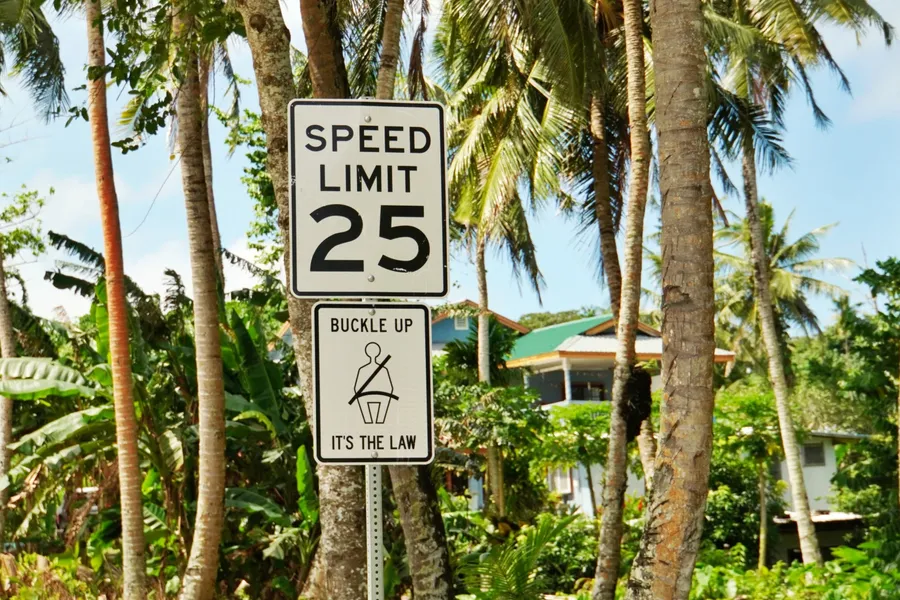
Road Safety in American Samoa
The final danger or potential hazard in American Samoa is the roads. Although speed limits are low and there are efficient road rules in place, the roads can be congested in Pago Pago, and accidents on the road do happen. Some safety tips for driving on the roads in American Samoa include:
- Take it easy and stick to the speed limit.
- Watch out for children and animals on the road.
- Be mindful of the buses.
- Wear a helmet when riding a scooter.
- Take extra care when driving on unsealed roads.
- Don't park under coconut trees.
- Wear your seatbelt (even if the locals don't).
We have elaboration on these safety tips in our guide, How to Drive in American Samoa + 10 Road Rules You Need to Know.
%20CREDIT%20TongaPocketGuide.com-900x600.webp?v=2025-11-20T21%3A14%3A28.747Z)
Medical and Travel Insurance for American Samoa
A hospital is available on the main island, Tutuila. The more remote you go in American Samoa, the more basic the health services are.
If you have health insurance that does not cover you abroad, consider purchasing some travel insurance. Good travel insurance for American Samoa should include cover for theft, illness and injury as a standard. It’s also worth adding on policies for evacuation and “dangerous sports” for travel insurance for American Samoa, which usually includes snorkelling, scuba diving and surfing.
Travel Protection Membership
The most comprehensive travel protection we've found is Global Rescue, which not only acts as a personal assistant for your health and safety, handling everything from expediting replacement of a lost passport to medical guidance, but even manages rescue and medical evacuation, should the worst occur.
Check out our Exclusive Deal with Global Rescue to gain one of the world's most comprehensive travel protection memberships.
More About Health and Safety in American Samoa
That's it for our complete guide to health and safety in American Samoa. For more American Samoa safety tips, check out the following guides:
- The Best Reef-Safe Sunscreens for American Samoa
- 15 Tips for Your Family American Samoa Vacation with Kids
- 30 Ways to Travel More Sustainably in American Samoa
Finally, get all the travel tips you need for American Samoa from The Complete Travel Guide to American Samoa and the 30 Tips for Travelling in American Samoa.


